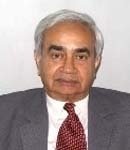South Asian Dialectic
Resuming the Indo-Pak Dialogue: Evolving a New Focus
18 Feb, 2015 · 4836
Prof PR Chari says that reopening the dialogue process could offer Pakistan both a challenge and an opportunity to redeem its present international image
Foreign Secretary Jaishankar is scheduled to visit Pakistan for resuming the interrupted Indo-Pak dialogue, which has got the talking heads in New Delhi into a tizzy. Why on earth did the Prime Minister reverse course after taking the firm position that Pakistan could not indulge in unacceptable conduct and hope to continue efforts to normalise relations with India? It would be recollected here that the Pakistani Foreign Secretary had gone ahead last year during his visit to India to meet separatist leaders from Kashmir in New Delhi, despite being specifically urged not to do so. That act of deliberate intransigence had caused Prime Minister Modi's ire, and his announcement that no further dialogue with Islamabad was possible due to its obduracy.
What has happened then to occasion this policy reversal? It has been alleged that US pressure on New Delhi was responsible. President Obama has made the inclusion of Pakistan within the structure of various dialogue processes into an article of faith, despite Pakistan's many transgressions. This is vividly demonstrated by Obama's Afghanistan policy, which privileges Pakistan above all others for being doled out financial largesse, despite its proven links with al Qaeda, Taliban and militant groups of all descriptions. It is therefore quite possible that President Obama strongly urged Modi to resume the dialogue with Pakistan and not complicate the American plans for withdrawing its forces from Afghanistan. Indeed, there are committed elements in India who also believe that dialogue with Pakistan should be an uninterrupted and uninterruptable process that is not subject to the vagaries of day-to-day occurrences.
Conspiracy theorists have also speculated that the BJP's humiliating defeat in the Delhi state elections, despite Modi's personal canvassing, alongside other stalwarts of the BJP and the RSS, made it imperative to divert public attention away from this electoral disaster. Hence, the dramatic decision to resume the shelved India-Pakistan dialogue although nothing has changed in the bilateral situation. This conclusion has some merit. But subsequent clarifications by the Government have sought to play down the significance of this overture to Pakistan by urging that the Foreign Secretary's visit to Islamabad is part of a larger diplomatic endeavour. Visits are also planned thereafter to the other SAARC capitals to infuse new life into this moribund organisation. The policy implications of this modality are of the essence and need to be emphasised, especially in the light of Prime Minister Modi's radical declarations during the last SAARC Summit meeting in Kathmandu held in November 2014.
After identifying terrorism as the major security threat confronting the regional grouping, Modi predicted that regional integration could occur “through SAARC or outside it” if the group failed to reach consensus on the many fundamental issues that were bedevilling this regional organisation. Modi also asserted, significantly, that India would work “through SAARC or outside it, among some or all of its members,” which presages a new approach to dealing with India's South Asian neighbours. Plainly, this was Modi's instinctive reaction to Pakistan's obstructive conduct during the Summit meeting, where it did not allow several proposals for achieving regional cooperation to be passed. Under its Charter, unfortunately, the founders of SAARC had opted for all its decisions being taken by consensus, and not on the basis of majority votes, which has enabled intransigent members to halt decision-making for frivolous and implausible reasons.
Modi's message to Islamabad was plain. If the situation so warranted India could work within the SAARC modality or with individual SAARC countries or with smaller groupings of its members. A new relevance was thereby accorded to bilateral relations and sub-regional groupings within the ambit of SAARC. Reportedly, a BJP spokesperson had declared earlier that “South Asia will grow without Pakistan if they don’t want to be on board. They anyway see themselves as a part of the Islamic West Asian world; good luck to them.” The Foreign Secretary could pursue these propositions during his forthcoming visit to Pakistan, in addition to the set-piece agenda for Indo-Pak meetings that must perforce include border incidents, terrorist activities, hostile propaganda, apart from more constructive items like strengthening trade relations and facilitating people-to-people relations.
In his subsequent visits to the other SAARC countries the Foreign Secretary could also explore the possibility of invigorating the possible sub-regional groupings within SAARC where some natural affinities are available, and trade, communications and similar cooperative linkages are already existing. A sub-regional grouping that would include Bangladesh, Bhutan, India and Nepal (BBIN), or India, Maldives and Sri Lanka (SIM) is presently conceivable. And, a sub-regional grouping comprising Afghanistan, Pakistan and India (API) can be visualised in the fullness of time if the politics of these countries transcends their present dissensions.
Viewed in the SAARC perspective the resumption of the Indo-Pak dialogue offers Pakistan both a challenge and an opportunity to redeem its present image of being the global centre for jihad and religious terrorism. It would be in the self-interests of both China and the US to support these initiatives that derive from the SAARC modality.


